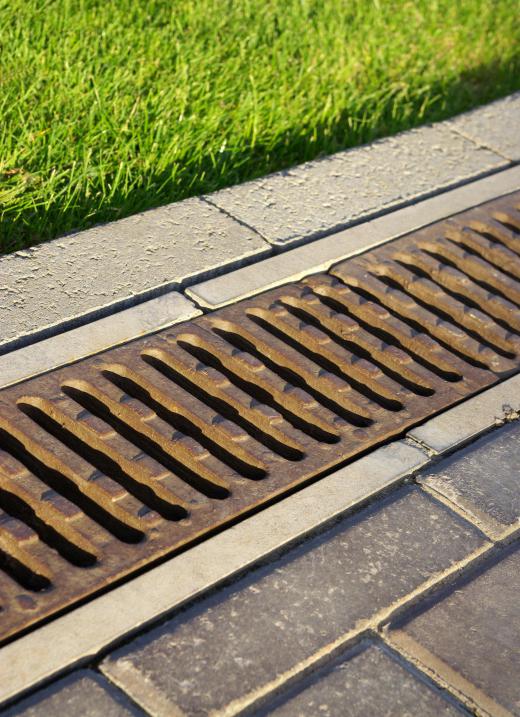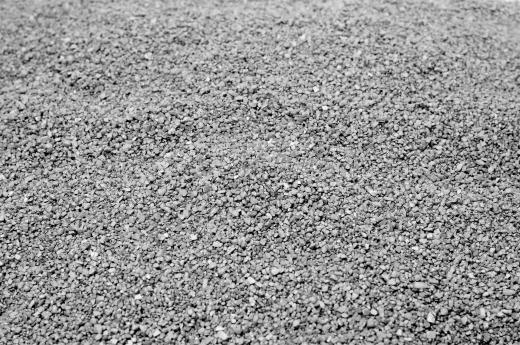A drain tile is a specialized pipe used in a specific type of drainage system. This type of drainage system is used to pull water away from the footings and foundation of a structure so that the water cannot penetrate the foundation. Water seepage can damage a structure over time, in addition to being inconvenient if the water ends up in a location such as a basement. Many hardware and home supply stores sell several styles of drain tile, and it can also be ordered directly from manufacturers.
The installation of a drain tile system starts with digging a trench around the footings of a home. A filter barrier is laid in the trench, and a tile is laid inside before being covered with gravel and covered with another filter. The filters prevent dirt and silt from entering the trench and clogging it, while the gravel provides a filter for water. Water will naturally drawn to the gravel because it is easier for water to flow through the gravel than it is for water to move through the surrounding soil. Perforations in the tile allow water to enter the pipe.

The system also has an outlet, allowing the water which collects in the drain tile to disperse. The outlet may be connected to a sump pump if a structure is on level ground or it is lower than the surrounding ground, or it may simply drain freely if a house is built on high ground, allowing the water to flow into storm drains or to trickle harmlessly downhill.

This type of drainage system is used to control the water table. As long as the water table lies below the drain tile, the drainage system is not needed, because the water is too low to enter the structure. If the water table starts to rise as a result of an event such as heavy rain, the tile quickly brings the water level back down, keeping water away from the foundations and footers of a home. Drain tile is usually installed as part of the process involved in building the foundation, although it may require periodic maintenance and replacement.
It is important to confirm that the trench and outlet are not clogged with dirt and silt. If the gravel becomes packed with dirt, it will be harder for the water to move through, which will result in less water reaching the pipe, and water may start to pool around a home. This can result in water seepage.
Ever since she began contributing to the site several years ago, Mary has embraced the exciting challenge of being a About Mechanics researcher and writer. Mary has a liberal arts degree from Goddard College and spends her free time reading, cooking, and exploring the great outdoors.

